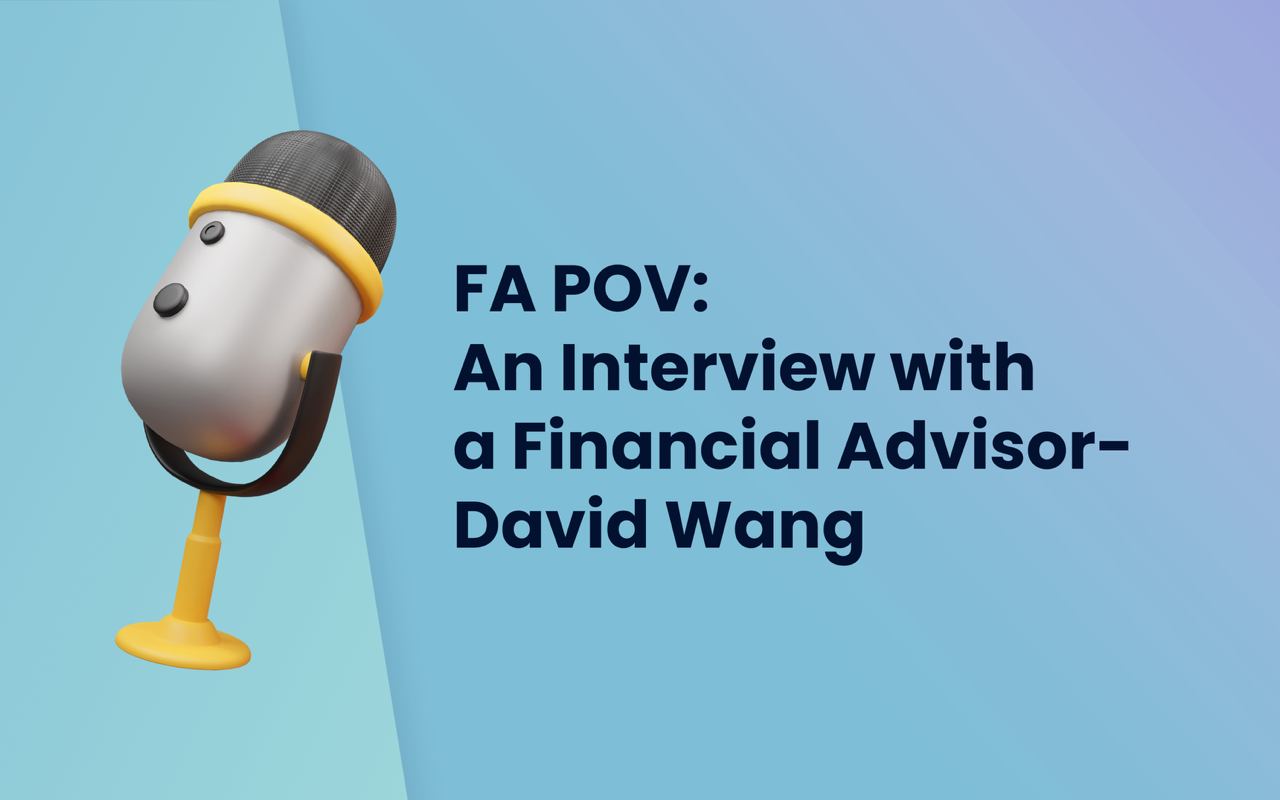An Interview with a Financial Advisor - David Wang
Ever wondered what personal finance tips a financial advisor would give the average person? Click here to learn more.

This week, the Pint’s team sat down with a financial advisor, David Wang. David is a double-degree business and economics student at SMU and has been working as a financial consultant since 2020. Here’s what he had to say when asked about tips he would give our readers for personal finance!
What’s The Best Piece of Financial Advice You’ve Ever Received?
“It’s more of an unusual but unique perspective, but it’s to start viewing yourself as a company rather than an individual. For instance, things like revenue in a company equate to your take-home income. Your costs refer to your expenditures and debts, as well as any other liabilities to your parents, etc. Then, you’ve got to decide how you want to spend your “free cash flow." Some companies just burn it, others save it into a treasury or bank, while some reinvest it into R&D. On a personal level, it could mean investing in your skills as well.
When you start looking at it this way, you start being more conscious and critical about where your money goes and what you do with it. It’s about being objective and responsible in making sure you make full use of your resources and take control of managing your money well.
Another piece of advice I found to be good was to focus more on the qualitative aspects of your personal financial decisions. This is because a lot of people tend to focus more on maximising the theoretical numbers without caring too much about the quality of, say, their investments. What’s interesting is that some studies have shown that people with annuities tend to have a lower net worth, but they spend more of their monthly income because they know they will be given a guaranteed income stream. This enables them to spend more freely in that sense.” says David Wang, a financial advisor from Singapore.
If You Could Personally Give Someone A Piece Of Financial Advice, What Would It Be?
“Probably to automate things as much as you can, meaning set things in motion in your financial plan so that you don’t have to think so much about it. For example, in terms of investments, set up a GIRO so you know you can set aside a fixed portion of your paycheck every month to invest.
The same principle works for investments as well. If you set it up once, you just have to make sure that the plan is appropriate for where you are at today, and you don’t have to worry about it anymore until something big changes.”
How Would You Advice Those Who Are Looking To Get Into Investing But Are Waiting For The “Right” Moment?
“Download Pints haha”
He said it, not us.
“I would say it depends on two things, one being how much interest you have in investing and the second being the amount of time you have on your hands. You’ve got to find the sweet spot for you. Different instruments require different amounts of due diligence and prior knowledge, so if you have the time and interest, you should read up on these things over the weekend before you start investing.
Look into platforms, especially ones that offer you more autonomy in the stocks or portfolios you choose. If you’re really busy, opt for things that don’t require too much knowledge, such as limited partners (LPs), robo-advisors, structured funds, etc. These things manage your funds on your behalf, but with a trade-off, of course.
Ultimately, it depends on what type of investor you are. You may not need to know everything about investing to get started, but just enough for the level and kind of investments you want to make.
When it comes to timing, if you were able to catch all your investments at their lowest and time the market perfectly, your returns would definitely be good, but it’s really hard to do that even as a fund manager. So usually, what works for a lot of people is to not care too much about timing and invest anyway. Just make sure you do your due diligence and research beforehand.”
What Are Some Good Ways for Anyone to Improve Their Financial Literacy?
“There are some really good YouTubers out there covering personal finance and condensing it into bite-sized information, like 10-minute-long videos. So that’s one good resource.
The Woke Salary Man is also one of my favourites, as their content is really relatable. You should ultimately try to find good content creators you resonate with, as that will keep you going back and learning more.”
Apart From Financial Investments, What Other Areas In Life Are Worth Investing In And Why?
“I would say friendships and family, definitely, but also, if you can, get a good chair and a second monitor. A good chair ties in with health a little, and it's a worthwhile investment if you spend a lot of hours working or studying in your room. A second, 27-inch monitor just improves your quality of life. Your productivity will be better, and your Netflix experience will improve as well.”
So there you have it: some insights into the outlook of a financial advisor. If any of David’s tips resonate with you, make sure to go ahead and start putting them into practice!